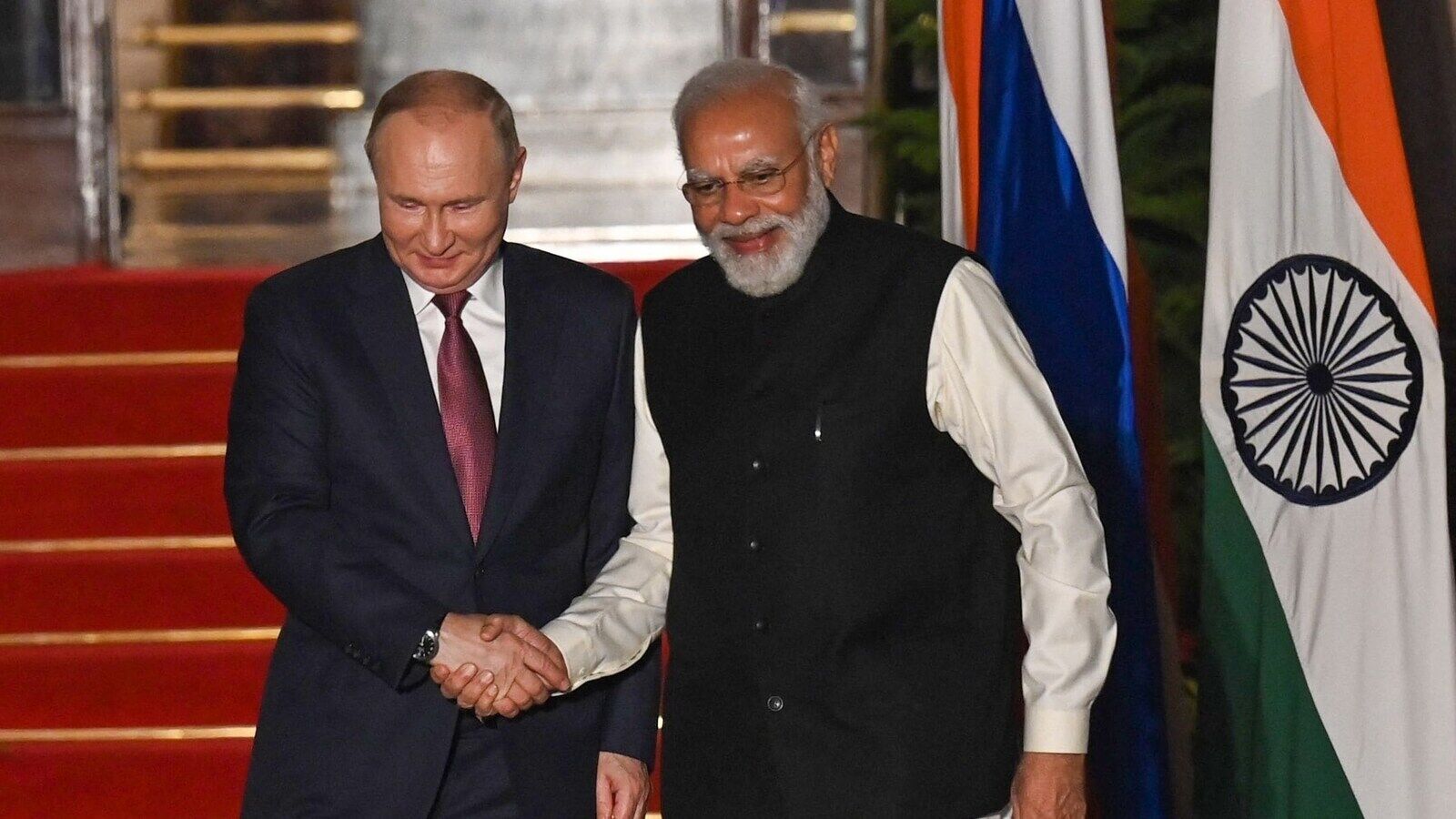Old friends

On Monday, PM Modi spoke over the phone with Russian President Vladimir Putin. The phone call reportedly was a follow-up on many of the issues raised during Putin's recent India visit on December 6. According to a statement by the PMO, the two leaders have agreed to remain in regular touch with each other on a range of issues covered under the India-Russia Special and Privileged Strategic Partnership. Insofar as visits from foreign dignitaries and leaders go, Putin's visit to India earlier this month was arguably the most consequential development for India in the field of foreign affairs for quite some time. India, as may be known, has a long and storied relationship with Russia and its precursor, the Soviet Union. From the earliest days, the friendship between the two nations had a strong strategic undertone with both sides supporting each other on the world stage whenever necessary. Indeed, the Soviet Union was undeniably India's greatest ally in the 20th century against the machinations of the western powers like the US that did not take kindly to India announcing itself to be a 'socialist' nation. From Kashmir to the Bangladesh Liberation War, Russia has stood by India in defence of its strategic interests. As a proof of the relationship, a majority of military equipment India currently possesses was either directly supplied by Moscow or is otherwise of Russian origin. In recent years, with the fall of the Soviet Union and India's move towards liberalising its economy, India has ventured out into the world to make a new set of friends. This time around, it is India and the US that are getting along like a house on fire. India has deliberately sought to widen its field diplomatically and militarily in order to not be tied down to a single nation with the rather pragmatic understanding that there are no permanent relationships in international politics. In more recent times, Russia and India have somewhat drifted further apart as Russia bands together with India's rival China to take on the hegemony of the western world that is held up by the US. While India has no interest in joining the US in its power games against Russia, it is very much interested in leveraging its relationship with the west in its struggle to contain a belligerent China. It is here that India has had to perform a tremendous tight-rope walk, particularly following the 2014 annexation of Crimea by Russia. On the one hand, you have America that wishes to limit or even extinguish India's strategic relationship with Russia. On the other, you have Russia that is increasingly concerned and agitated by India drawing ever closer to the US's sphere of influence as it joins America in endeavours like the Quad grouping. Of particular concern to both sides is India's continuing dependence on Russia for military equipment. The US, already having sanctioned Turkey for the same, looks on menacingly as it threatens India with sanctions for buying the S-400 missile system. Russia, of course, is not only interested in keeping its old defence ties but even expanding them, as it has been recently teasing India with the possibility of being the first nation in the world to buy the improved S-500 missile system. In this regard, Putin's visit to India could be termed as symbolic. Since the beginning of the pandemic, Putin has only ventured out twice from his country, with the second trip being the one to India. His tone and body language during the meeting with PM Modi spoke volumes of the importance he attaches to maintaining the ties with India. Aside from underscoring the good working relationship he has with India's PM, the visit also highlighted that despite the recent turns of history, the two nations still have much to share and collectively work towards. Common concern in regards to the Taliban and Afghanistan is one such area that the two sides are looking to cooperate on in the near future. Another is strengthening existing defence ties between the two nations. Underscoring its strategic independence, India has decided to continue with its defence dealings with Russia, discussing the purchase of the S-400 missile system while also finalising a long-pending Rs 5,000 crore deal for the production of over five lakh AK-203 rifles in a joint Indo-Russian deal. But all said and done, the future of India's relationship with Russia still has some shades of uncertainty. Primary amongst them is the ongoing escalation between Moscow and NATO in regards to Ukraine and eastern Europe. If Russia should choose to brave threats of western sanctions to take action in Ukraine, where does this leave India? Can India still continue its balancing game between east and west at a time when geopolitics are heating up to a boiling point? That remains to be seen.



